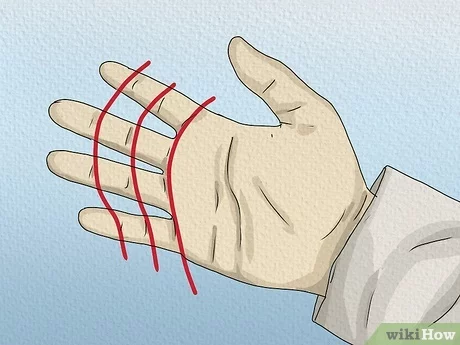 Given the centrality of theQur'anin the lives of the majority of more than one billion Muslims worldwide, the critical question is,"What, if there's anything, does theQur'ansay about human rights?"In Part One and Two we discussed the rights of life, respect, justice, freedom, privacy, protection from slander, backbite, and ridicule and acquiring knowledge.This part continues the discussion on human rights in theQur'an.
Given the centrality of theQur'anin the lives of the majority of more than one billion Muslims worldwide, the critical question is,"What, if there's anything, does theQur'ansay about human rights?"In Part One and Two we discussed the rights of life, respect, justice, freedom, privacy, protection from slander, backbite, and ridicule and acquiring knowledge.This part continues the discussion on human rights in theQur'an.
Right of Migration Under Oppressin
According to the Qur'anic teachings, a Muslim's ultimate loyalty must be to Allah, not to any territory. To fulfill his Prophetic mission, the Prophet (peace and blessings be upon him) decided to leave his place of birth, Makkah, and emigrate to Madinah. This event of Hijrah has great historical and spiritual significance for Muslims who are called upon to move away from their place of origin if it becomes an abode of evil and oppression where they cannot fulfill their obligations toward Allah or establish justice.
In a powerful statement, Almighty Allah says,
(Verily, (as for) those whom the angels cause to die while they are unjust to their souls, (the angels) shall say, "In what state were you?" They shall say, "We were weak and oppressed in the earth." They shall say, "Was not Allah's earth spacious that you could have migrated therein?" As for such, their abode is Hell, an evil end of a journey, except the weak and oppressed among men and women and children who are unable to devise a plan and are not shown a way. As for such, it may be that Allah will pardon them, and Allah is Pardoning, Forgiving. And whoever migrates for the cause of Allah will find much refuge and abundance in the earth, and (for) whoever forsakes his home, a fugitive unto Allah and His Messenger, and then death overtakes him, his reward is then incumbent on Allah, and Allah is Forgiving, Merciful.) (An-Nisaa' 4:97–100)
Right of Aesthetic Sensibilities and Enjoying the Bounties of Allah
Muhammad Asad said
By declaring that all good and beautiful things of life (i.e. those which are not expressly prohibited) are lawful to the believers, the Qur'an condemns — by implication — all forms of life-denying asceticism, world-renunciation, and self-mortification.
The Qur'an, which regards physical phenomena as signs of Allah, greatly differs from the spirit of classicalGreece with its contempt for sense-perception.
Some of the most memorable verses in the Qur'an point to the insight and wisdom that can be gained by reflecting on the myriad manifestations of Allah's creative activity all around us.
The Qur'an tells Muslims that monasticism was not prescribed by Allah,
(Then We caused Our messengers to follow in their footsteps; and We caused Jesus, son of Mary, to follow, and gave him the Gospel, and placed compassion and mercy in the hearts of those who followed him. But monasticism they invented. We ordained it not for them. Only seeking Allah's pleasure, and they observed it not with right observance. So We give those of them who believe their reward, but many of them are evil livers.)(Al-Hadid 57:27)
Although they are to remember that the hereafter is more important than the life on earth, Muslims are told to reject the negative view that it is wrong to enjoy the beauty of Allah's creation and His bounty. Almighty Allah says,
(Say, "Who has prohibited the adornment of Allah, which He has brought forth for His servants, and the good provisions?" Say, "These are, for those who believed during the life of this world, purely theirs on the Day of Resurrection." Thus do We detail the revelations for a people who know.) (Al-A`raf 7:32)
The right to develop one's aesthetic sensibilities, so that one can appreciate beauty in all its forms, and the right to enjoy what Allah has provided for the nurture of humankind are thus rooted in the life-affirming vision of the Qur'an.
Right to Sustenance
The Qur`an points out that every living creature depends on Allah for sustenance. In the Qur'an, a cardinal concept that underlies the social, economic, and political system of Islam confirms that the ownership of everything does not belong to any person, but rather to Allah.
He Almighty says,
(And there is not a beast in the earth but the sustenance thereof dependeth on Allah. He knoweth its habitation and its repository. All is in a clear record.) (Hud 11:6)
Because Allah is the Creator of all beings, every creature is given the right to partake of what belongs to Him:
(He it is who hath placed you as viceroys of the earth and hath exalted some of you in rank above others, that He may try you by (the test of) that which He hath given you. Lo! Thy Lord is swift in prosecution, and lo! He is Forgiving, Merciful.)(Al-An`am 6:165)
(He it is Who hath made the earth subservient unto you, so walk in the paths thereof and eat of His providence. And unto Him will be the resurrection (of the dead).)(Al-Mulk 67:15)
This means that every human being has the right to a means of living.
Those who hold the economic or political power do not have the right to deprive others of the basic necessities of life by misappropriating or misusing the resources created by Allah for the benefit of all creatures.
Right to Good Life
The Qur'an upholds not only the right to life but also the right to a "good life." This good life, which is made up of many elements, becomes possible when a human being lives in a just community.
According to the Qur'anic teachings, justice is a prerequisite for peace, and peace is a prerequisite for human development. In a just society, all the aforementioned human rights may be exercised without difficulty.
In such a society, other basic rights also exist, such as the right to a secure place of residence, the right to protection of personal possessions, the right to protection of covenants, and the right to free movement.
Almighty Allah says,
(Divorce must be pronounced twice and then (a woman) must be retained in honor or released in kindness. And it is not lawful for you that ye take from women aught of that which ye have given them; except (in the case) when both fear that they may not be able to keep within the limits (imposed by) Allah. And if ye fear that they may not be able to keep the limits of Allah, in that case it is no sin for either of them if the woman ransom herself. These are the limits (imposed by) Allah. Transgress them not. For whoso transgresseth Allah's limits: such are wrongdoers.) ( Al-Baqarah 2:229)
And says,
(O ye who believe! Fulfil your undertakings. The beast of cattle is made lawful unto you (for food) except that which is announced unto you (herein), game being unlawful when ye are on pilgrimage. Lo! Allah ordaineth that which pleaseth Him.)(Al-Ma'idah 5:1)
He Almighty also says,
(Come not near the wealth of the orphan save with that which is better till he come to strength; and keep the covenant. Lo! of the covenant it will be asked.) ( Al-Israa' 17:34)
Other Rights
Because the teachings of Islam embrace every aspect of human life, the Qur'an contains many references to human rights. It is therefore difficult to mention all these references in a short summary.
In the foregoing account, reference has been made to human rights that figure in the Qur'an and continue to be of ongoing interest and importance in contemporary Muslim societies. In addition to the rights mentioned earlier, reference may also be made to the following rights:
1. The right to social and judicial autonomy for minorities
2. The right to protection of holy places
3. The right to return to one's spiritual center
There are indications from across the Islamic World that an increasing number of Muslims are beginning to seriously reflect on these teachings of the Qur'an. They are becoming disenchanted by capitalism, communism, and Western democracy.
As this reflection deepens, it is likely to lead to the realization that the supreme task entrusted to human beings by Allah (of being Allah's vicegerents on earth) can only be accomplished by establishing justice, which is regarded in the Qur'an as a prerequisite for authentic peace.
Without the elimination of inequity, inequalities, and injustice that pervade the personal and collective lives of human beings, it is not possible to talk about peace in Qur'anic terms.
It is important to note that there is more Qur'anic legislation on the establishment of justice in the context of family relationships than on any other subject. This points to an implicit assumption in the Qur'anic legislation. If humans can learn to justly order their homes so that rights of the children, women, and men living inside these homes are safeguarded, then they can also justly order their society and the world at large.
In other words, the Qur'an regards the home as a microcosm of the Ummah and the world community and emphasizes the importance of making it "the abode of peace" through just living.
Source : http://www.onislam.net
Post Disclaimer | Support Us
Support Us
The sailanmuslim.com web site entirely supported by individual donors and well wishers. If you regularly visit this site and wish to show your appreciation, or if you wish to see further development of sailanmuslim.com, please donate us
IMPORTANT : All content hosted on sailanmuslim.com is solely for non-commercial purposes and with the permission of original copyright holders. Any other use of the hosted content, such as for financial gain, requires express approval from the copyright owners.
 Sri lanka Muslims Web Portal Sri Lanka Muslims News Center
Sri lanka Muslims Web Portal Sri Lanka Muslims News Center
 Donate
Donate


